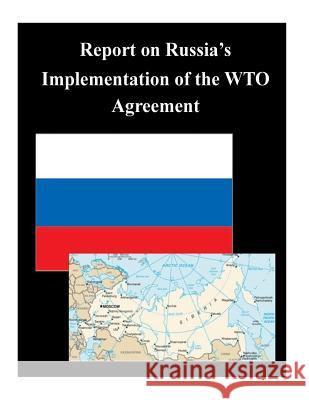Report on Russia's Implementation of the WTO Agreement » książka
Report on Russia's Implementation of the WTO Agreement
ISBN-13: 9781502763198 / Angielski / Miękka / 2014 / 50 str.
Russia applied to join the General Agreement on Tariffs and Trade 1947 (GATT) in 1993. In 1994, its GATT Working Party was transformed into a working party on its accession to the World Trade Organization (WTO). During the 18 years of Russia's WTO accession negotiations, it worked to modernize its economy and create a stable business environment. WTO Members, for their part, worked to ensure that Russia's legal regime incorporated the key principles on which the WTO is built: national treatment, most-favored nation (MFN) treatment, transparency, and, more generally, the rule of law. The Report of the Working Party on the Accession of the Russian Federation to the World Trade Organization (WPR) identifies over 500 legal measures (such as international treaties, laws, regulations, decrees, resolutions, and other measures) that Russia adopted, amended or modified in an effort to bring its legal regime governing international trade into conformity with the WTO rules. As a result, by the time Russia became a WTO Member on August 22, 2012, it had in place the legislative framework to achieve compliance with its WTO obligations. Having laws on the books and rules in place, however, does not guarantee WTO compliance or ensure that U.S. workers and businesses will realize the full benefits of Russia's WTO membership. Russia must implement fully its obligations under the WTO Agreement, including the specific commitments undertaken as part of the terms of its accession to the WTO. That task is not of course achieved in a single event; rather, it is an on-going, everyday effort required of every WTO Member.
Zawartość książki może nie spełniać oczekiwań – reklamacje nie obejmują treści, która mogła nie być redakcyjnie ani merytorycznie opracowana.











